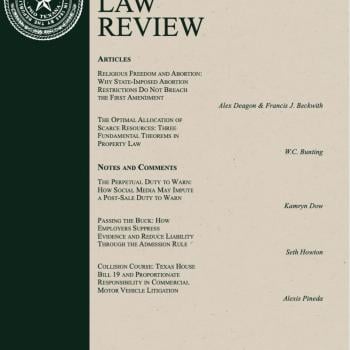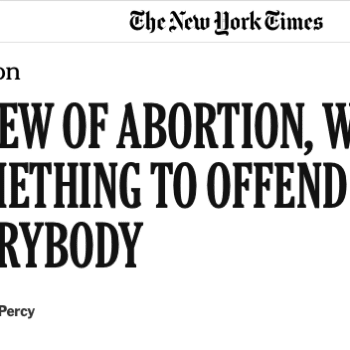Sunday, January 22, is the 39th anniversary of Roe v. Wade (1973). Even though many citizens reject the opinion, not many know why it is so flawed. In chapter 2 of my 2007 book, Defending Life: A Moral and Legal Case Against Abortion Choice (Cambridge University Press), I offer a detailed analysis of Roe and some subsequent Supreme Court opinions. An earlier version of that chapter was published in 2006 (1.1, pp. 37-72) in the inaugural issue of the Liberty University Law Review under the title “The Supreme Court, Roe v. Wade, and Abortion Law.” Here’s how it begins:
2007 book, Defending Life: A Moral and Legal Case Against Abortion Choice (Cambridge University Press), I offer a detailed analysis of Roe and some subsequent Supreme Court opinions. An earlier version of that chapter was published in 2006 (1.1, pp. 37-72) in the inaugural issue of the Liberty University Law Review under the title “The Supreme Court, Roe v. Wade, and Abortion Law.” Here’s how it begins:
It is no exaggeration to say that no U.S. Supreme Court opinion has been more misunderstood and has had its arguments more misrepresented in the public square than Roe v. Wade (1973).1 There seems to be a widespread perception that Roe was a moderate opinion that does not support abortion on demand, i.e., unrestricted abortion for all nine months for virtually any reason. Even a philosopher of such erudity as Mortimer Adler did not seem to fully understand the legal implications of Roe: “Mr. Justice Blackmun’s decision in the case of Roe v. Wade invokes the right of privacy, which is nothing but the freedom of an adult woman to do as she pleases with her own body in the first trimester of pregnancy.”
In order to fully grasp the reasoning of Roe, its paucity as a piece of constitutional jurisprudence, and the current state of abortion law, this article looks at three different but interrelated topics: (1) what the Court actually concluded in Roe; (2) the Court’s reasoning in Roe; and (3) how subsequent Court opinions, including Casey v. Planned Parenthood, have shaped the jurisprudence of abortion law.
You can read, and download, the whole thing here.












